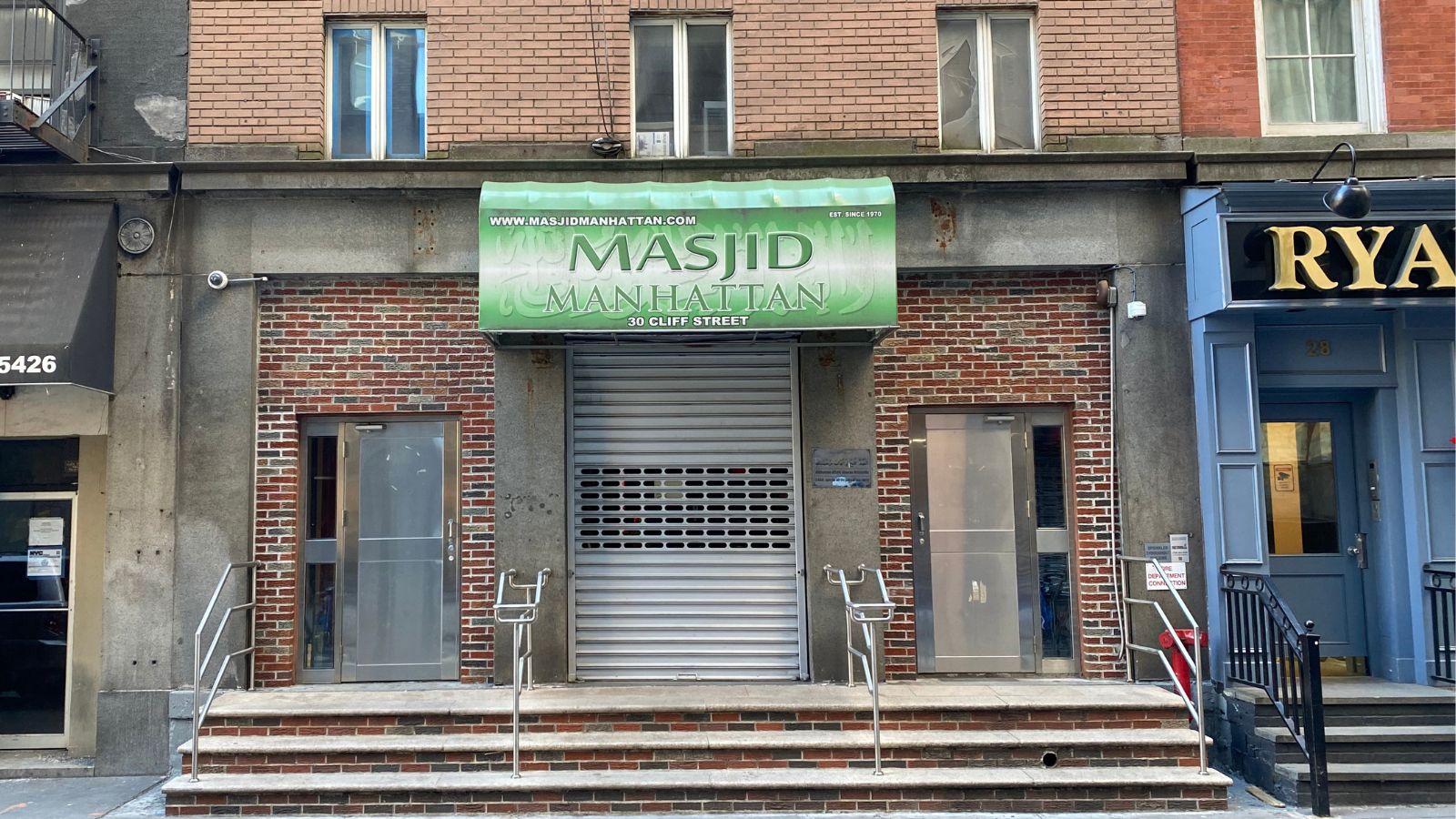
NEW YORK — A man named Sayeed, one of the mosque’s leaders, directs dozens of worshipers to line up in three rows before the Friday jummah prayers begin at Masjid Manhattan. Some men arrive late and find themselves hastily removing their shoes in the hallway and finding some of the few empty spaces among the three rows of men.
The modest mosque on 30 Cliff Street in Manhattan’s financial district attracts Sunni worshipers of all ages and backgrounds. The room reflects the diversity of New York’s Muslims: Arab, South Asian, Black, Caucasian. Each stands side by side in anticipation for Jummah afternoon’s two Rak’at (a series of prescribed movements and prayers).
But before each Rak’ah, the worshipers must recite the Fatiha or “the opener.” The Fatiha is the first surah (chapter) in the Quran. Abdullah Hossain, a recent PhD graduate in electrical engineering, recites the Fatiha in the front of the room.
In the name of God the most merciful
All praise is for God, lord of all the worlds
The most compassionate
The most merciful
Owner of the day of judgment
You alone we worship, you alone we ask for help
Guide us along the straight path
The path of those you have blessed, not those you are displeased with or those you have led astray.
As Hossain leads the prayer, each man focuses their attention on themselves, tucking their chins and keeping their gaze lowered to the space directly in front of them. They interlock their arms across their chest, preparing themselves for the Rak’ah. Every line of the Fatiha reminds them of their purpose as Muslims.
Sheikh Mostafa Shekel, the leader of the congregation, explains the importance of the Fatiha. “We recite the Fatiha before every prayer. It is the beginning of everything we do.” The prayer represents the core tenets of the Islamic faith: God is one, he has no equivalent, he displays compassion and mercy, and will determine the fate of each person on the day of judgment.
The sheikh explains that as Muslims, they must follow the straight path as described in the Fatiha. “In Christianity, Jesus forgives the people for their sins and they are redeemed,” he says. “Islam is not like that.” In Islam, he adds, each Muslim must follow the path of Allah and strive for excellence in the path to prepare for the ultimate day of judgment.
After Hossain finishes the Fatiha, each worshiper bends forward and puts their hands on their knees. They then place their knees on the ground, and bow towards the front of the room.
Each man then whispers from side to side:
Subhana Rabbi Al Ala
Glory be to my lord almighty.
They are now spiritually prepared to pursue the path of righteousness.
